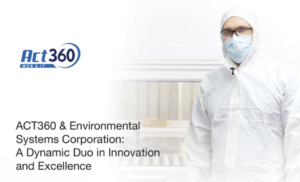As environmental concerns become a core focus for the IT sector, building a sustainability strategy within the business will prove successful for long term success.
There are a number of steps IT leaders can take to adopt a sustainable business strategy, ranging from strategic shifts of system rollouts to conversing with partners to uproot and reinvent practices.
Recent research found that 53% of employees are keen to see more companies invest in eco-friendly solutions, with 42% stating poor sustainability initiatives had a detrimental impact on their morale at work.
By embedding sustainability across every process within the organisation, businesses can create a holistic sustainability-focused business model which considers how resources will be used to maximise their full lifecycle impact and reduce carbon waste as well as their contribution to productivity.
According to Steve Dickinson, Head of Supply chain at Espria, sustainable operations must be a core business objective and leaders have a responsibility to engage with all their customers and partners on an equal footing to get a handle on their short and long-term sustainability goals.
“Customers are increasingly looking to spend their money with businesses that can demonstrate strong sustainability credentials and going green can improve your brand reputation with consumers.
“If businesses include customer impact in their sustainability discussions, they may attract more business and therefore, revenue from clients – the message really resonates and in practice effects many products and processes.”
“Prioritising sustainability as a core business goal can improve the overall worker proposition and attract employees to a company who are aligned with their own sustainability ambitions and goals. Sustainability doesn’t just pertain to an effective sustainability strategy but also hardware and infrastructure, helping businesses become more cost-effective.
“Naturally, there are plenty of organisations that don’t need to overhaul their entire tech stack but an effective strategy can lead to the discovery and implementation of cost-effective solutions. For instance, IT leaders can reduce the average carbon impact of devices by utilising remanufactured or refurbished devices across the organisation, and when coupled with mindful WEEE, even more so. Embracing energy-efficient devices can help businesses scale as well as manage CO2 emissions and power consumption, while reducing operating costs.
“By keeping already efficient devices running for longer, IT leaders will benefit from both a sustainable and financial point of view. Many technology manufacturers already help businesses maintain the efficiency of these devices, reducing unnecessary waste and conserving resources where possible. Dickinson concluded, “At Espria, we are firm believers that organisations should lead by example and implement sustainable practices. We have dedicated significant effort to operating in a manner that is environmentally sustainable. Our recent recognition with the TR for Sustainability award win is testament to the unwavering commitment and effort Espria has invested in operating and growing in a way that is not only sustainable but also environmentally responsible





